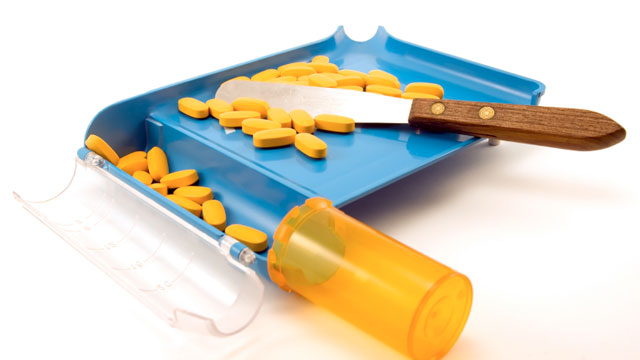Stop Side Effects Before They Start
Many drug reactions are preventable. Learn how to protect yourself. [More]

Millions of Americans are experiencing unnecessary adverse reactions, “ranging from dizziness and nausea all the way to death,” because drug-manufacturers' recommended doses are too high, states medical expert Jay S. Cohen, M.D., associate professor of family and preventative medicine at the University of California at San Diego, in his book, Over Dose: The Case Against the Drug Companies.
“Of course—to a point,” reports Dr. Cohen. “A drug company doesn't want a new drug to cause any more side effects than necessary. On the other hand, getting a drug to market quickly, before its competitors, is often worth billions and proves far more important to drug companies than determining the very best and safest doses for patients.”
Dr. Cohen's important book, Over Dose, explains in specific detail how and why drug companies create unnecessarily high doses.
Drug makers use “the highest-possible dose” to convince the FDA that their new drug works (citing Dr. Woosley in Drug Therapy).
“It's the regulatory [FDA] requirement to demonstrate efficacy that drives higher doses” (citing associate vice president for the Pharmaceutical Research & Manufacturers of America).
But the FDA doesn't prevent drug companies from researching and producing lower doses.
Dr. Cohen explains the obvious: “Limited doses are quicker and easier to research, cheaper to produce, and easier to market, requiring fewer guidelines and fewer pill sizes.”
Simplistic dosaging helps busy doctors, too. “Doctors like drugs that come in a one-size-fits-all dose,” so, “if a pharmaceutical company makes it the least bit complicated for them, they'll often choose another drug that's simpler to use.”
What is the solution? While improvements can and should be made in our system of approving new drugs and their doses, the most important person in protecting your health is YOU.
“Don't expect the FDA, your doctor, or anyone else to take full responsibility for your greatest natural resource—your health,” advises medical expert, Dr. Ray Strand, M.D., in his book on this subject, Death By Prescription: The Shocking Truth Behind an Overmedicated Nation. “You must become the chief guardian of your health,” Dr. Strand advises, by becoming actively involved in your own treatment.
Many drug reactions are preventable if you learn to ask the right questions to your doctor and pharmacist, as discussed next, see: “Stop Side Effects Before They Start.”
Many drug reactions are preventable. Learn how to protect yourself. [More]
Many think methylphenidate (Ritalin) is safe, or mild, because so many children use it. However, the government classifies the psychoactive drug with cocaine and morphine because it's highly addictive. [More]
Whether you know it or not, if you have purchased newly released drugs or have taken free samples of medication, you, too, are part of the great ongoing clinical trial. Find out why the hottest drugs may be the most toxic. [More]
Prescription guidelines do not currently distinguish between the sexes, even though it’s well recognized that women suffer more frequently from side effects. [More]
If over-the-counter drugs were dangerous, the FDA would never allow them to be sold without a prescription, right? Not exactly. Almost all OTC medications were at one time prescription drugs and have inherent risks of adverse reactions like any prescription. [More]
“It’s the holy grail that every drug company tries to achieve,” according to a former director of the Center for Drug Evaluation and Research at the Federal drug agency who said: “One-dose-fits-all is a marketing myth.” [More]
A clinical study funded by the National Institutes of Health found amphetamines damage brain cells needed for cognitive speed and function. [More]